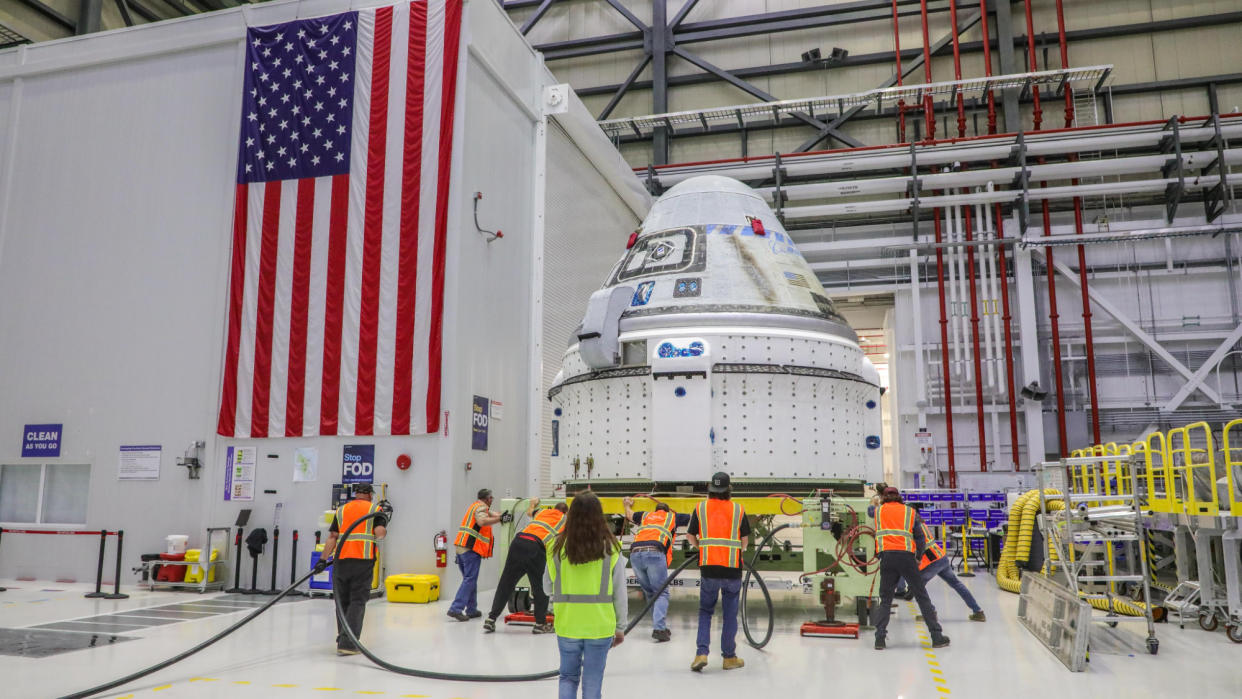Boeing begins fueling Starliner capsule ahead of 1st astronaut launch

Boeing has started fueling up its Starliner capsule ahead of the vehicle's first-ever astronaut launch.
That mission, called Crew Flight Test (CFT), is currently scheduled to launch in early May atop a United Launch Alliance Atlas V rocket from Cape Canaveral Space Force Station, on Florida's Atlantic coast. It will send NASA astronauts Suni Williams and Butch Wilmore to the International Space Station (ISS) for a roughly 10-day stay.
On Monday (March 18), Boeing announced that it had taken a significant step toward launch — beginning to load propellant into Starliner, a process that will take about two weeks.
Related: Starliner: Boeing's next-generation spaceship for astronauts
The activity is taking place at Boeing's Commercial Crew and Cargo Processing Facility (C3PF) at NASA's Kennedy Space Center, which is next door to Cape Canaveral Space Force Station.
"Conducting the propellant loading operation is a team made up of specially trained technicians, as well as fluids, propellant and electrical test engineers," Boeing wrote in a brief update on Monday.
"Throughout the operation, test teammates monitor the spacecraft, including sensors and valves, as well as the environment within the C3PF," they added.
RELATED STORIES:
— Boeing faces 'emerging issues' ahead of Starliner capsule's 1st crewed flight, NASA says
— Starliner: Boeing's next-generation spaceship for astronauts
— International Space Station — Everything you need to know
In September 2014, NASA awarded Boeing and SpaceX multibillion-dollar contracts via its Commercial Crew Program. Elon Musk's company has already launched eight operational astronaut flights to the ISS for the agency, as well as one crewed test mission, but Starliner has yet to carry people.
Boeing's capsule has launched twice to date, on uncrewed test flights to the orbiting lab. Starliner suffered several problems on the first mission, which launched in December 2019, and failed to meet up with the ISS as planned. But it succeeded on its second attempt, in May 2022.
CFT was supposed to launch last summer but has been pushed back multiple times due to technical issues, chief among them a problem with the suspension lines on Starliner's main parachutes and the fact that much of its wiring was wrapped in flammable tape. But technicians have fixed those problems, and CFT is on track for a liftoff this spring, NASA and Boeing officials say.
